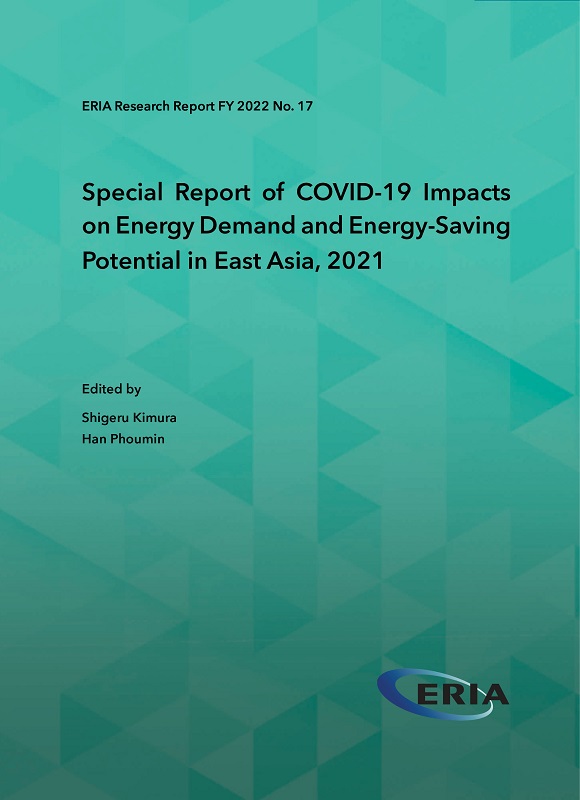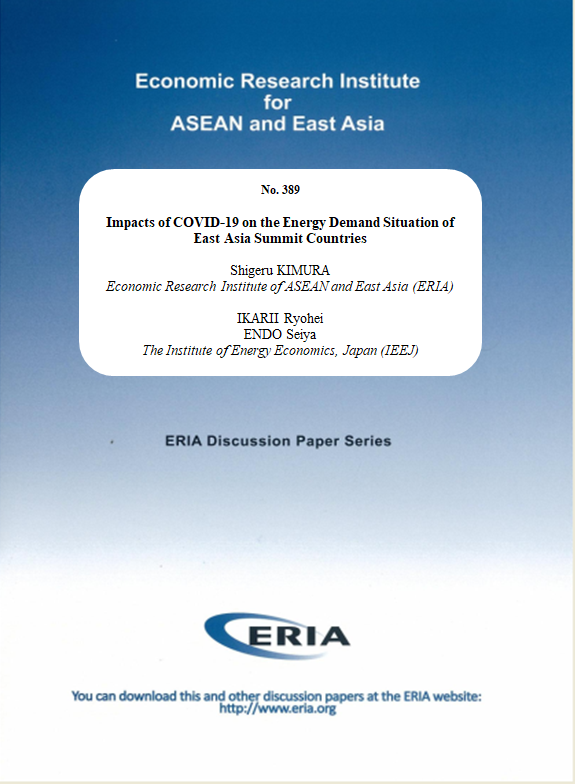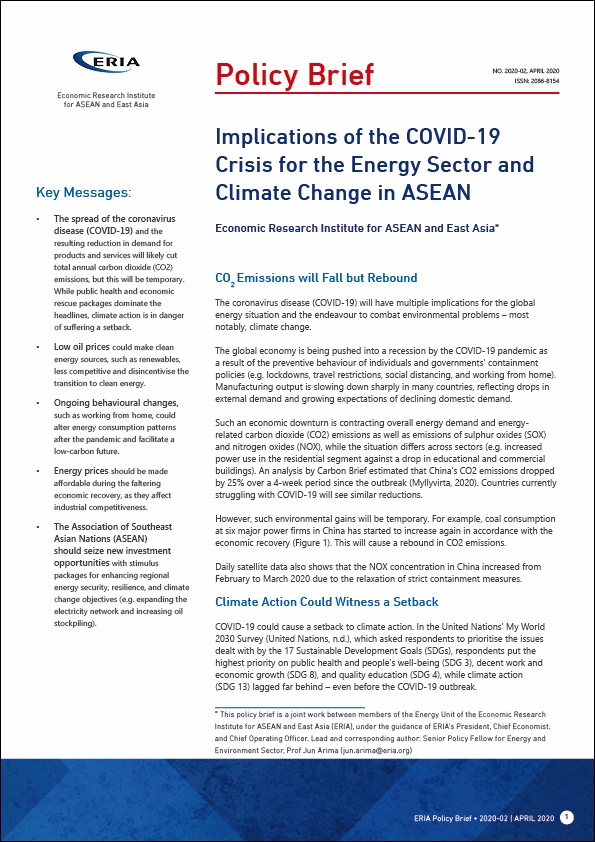Special Report of COVID-19 Impacts on Energy Demand and Energy-Saving Potential in East Asia, 2021

Date:
9 December 2022Category:
ASEAN, COVID-19, Energy, Innovation and TechnologyType:
Research Project ReportsTags:
Energy, COVID-19, East Asia Summit, East Asia, ASEANPrint Article:
The Association of Southeast Asian Nations (ASEAN) and East Asia face tremendous challenges in navigating the future energy landscape and in determining how the energy transition will embrace new architectures, including sound policy and technologies, to ensure access to energy that is affordable, secure, and sustainable. The East Asia Summit (EAS) economies have been hit hard by the coronavirus (COVID-19) pandemic, but energy demand growth is expected to bounce back strongly as the economies recover after 2022. All decisions and energy policy measures will need to be weighed against potentially higher energy costs and security risks in the post–COVID-19 era.
Full Report
Special Report of COVID-19 Impacts on Energy Demand and Energy-Saving Potential in East Asia, 2021
Contents
Chapter 1 Impact of COVID-19 on Energy Demand in ASEAN
Chapter 2 Impacts of COVID-19 on Energy Demand in the Asia-Pacific Countries
Chapter 3 Australia Country Report
Chapter 4 Cambodia Country Report
Chapter 5 China Country Report
Chapter 6 India Country Report
Chapter 7 Indonesia Country Report
Chapter 8 Japan Country Report
Chapter 9 Republic of Korea Country Report
Chapter 10 Lao People's Democratic Republic Country Report
Chapter 11 Malaysia Country Report
Chapter 12 Myanmar Country Report
Chapter 13 New Zealand Country Report
Chapter 14 Philippines Country Report
Chapter 15 Singapore Country Report
Chapter 16 Thailand Country Report




